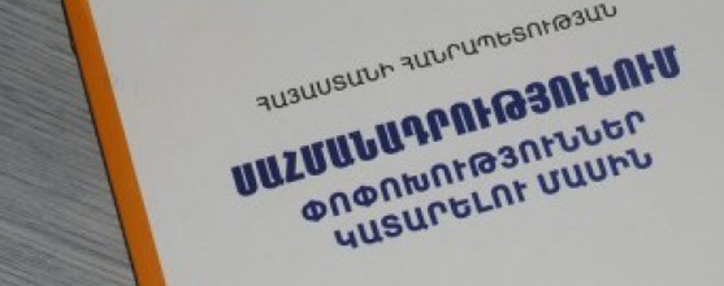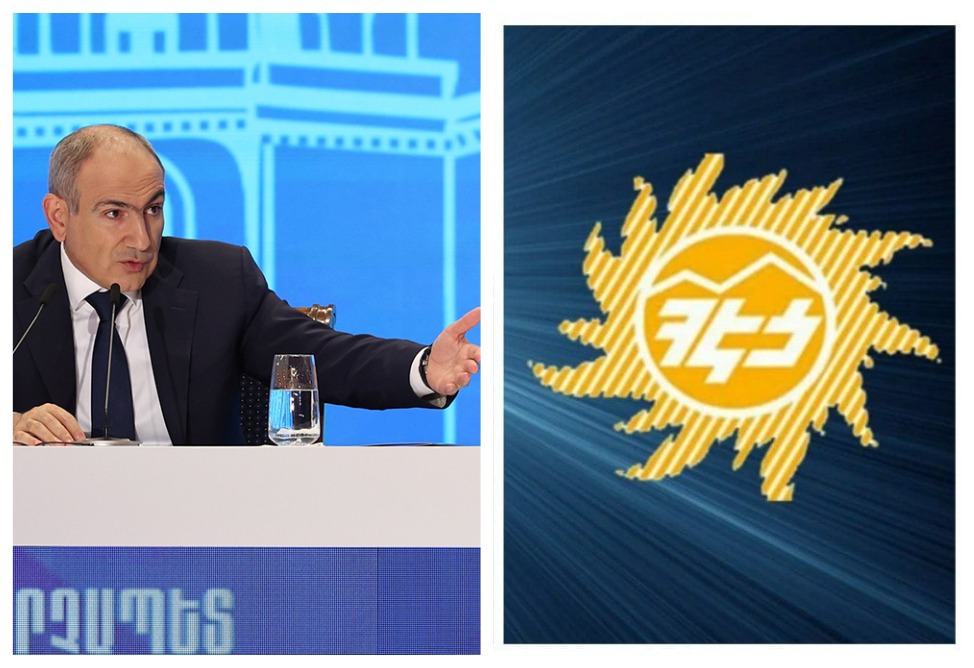New Armenian electoral code still under development
22.02.2016,
15:52
A new Armenian Electoral Code is currently under development and will be submitted to parliament’s consideration once it is ready, deputy parliament speaker Eduard Sharmazanov said today.

YEREVAN, February 22. /ARKA/. A new Armenian Electoral Code is currently under development and will be submitted to parliament’s consideration once it is ready, deputy parliament speaker Eduard Sharmazanov said today.
Opposition MPs claim that the New Electoral Code has been developed and was sent to the Venice Commission of the Council of Europe without their consent.
Addressing lawmakers today Sharmazanov said the new election law is to be adopted before June.
"The final version of the law is not ready yet. Once it is ready, it will be submitted to parliament and all the political forces will be able to present their position," said Sharmazanov.
The adoption of a new Electoral Code stems from a set of constitutional changes adopted in a referendum last December which call for Armenia’s transition from semi-presidential form of governance to parliamentary republic.
According to the revised Constitution, the president of Armenia, whose powers are significantly curtailed, is elected for a term of seven years (instead of the current five) by the parliament, not in a national vote.
Presidents will be limited to one term of office. To be elected in the first round the candidate must be backed by three-fourths of votes. If this cannot be done, the candidate must be elected by three-fifths of votes.
If the candidate fails to garner enough votes, they will be elected by a majority of all deputies. According to the adopted changes, the president of Armenia would be head of state, embodying national unity and ensuring the observance of the Constitution. They cannot be a member of a political party.
Under the changes the president is to appoint a candidate for prime minister of the party or party bloc that wins parliamentary elections. If parliamentary forces are unable to agree on the candidacy of the head of government, parliament is to be dissolved. A vote of no-confidence in the prime minister can be passed no sooner than a year after their appointment.
According to the document, the armed forces are subordinated to the government, and the prime minister is the supreme commander of the armed forces in times of war.
The adopted changes stipulate that parliament members are elected for five years by a proportional system. The unicameral parliament is to consist of at least 101 members (instead of the current 131). This means that 41 single-seat constituencies must be abolished. The new parliament must have representatives of national minorities.-0-
Opposition MPs claim that the New Electoral Code has been developed and was sent to the Venice Commission of the Council of Europe without their consent.
Addressing lawmakers today Sharmazanov said the new election law is to be adopted before June.
"The final version of the law is not ready yet. Once it is ready, it will be submitted to parliament and all the political forces will be able to present their position," said Sharmazanov.
The adoption of a new Electoral Code stems from a set of constitutional changes adopted in a referendum last December which call for Armenia’s transition from semi-presidential form of governance to parliamentary republic.
According to the revised Constitution, the president of Armenia, whose powers are significantly curtailed, is elected for a term of seven years (instead of the current five) by the parliament, not in a national vote.
Presidents will be limited to one term of office. To be elected in the first round the candidate must be backed by three-fourths of votes. If this cannot be done, the candidate must be elected by three-fifths of votes.
If the candidate fails to garner enough votes, they will be elected by a majority of all deputies. According to the adopted changes, the president of Armenia would be head of state, embodying national unity and ensuring the observance of the Constitution. They cannot be a member of a political party.
Under the changes the president is to appoint a candidate for prime minister of the party or party bloc that wins parliamentary elections. If parliamentary forces are unable to agree on the candidacy of the head of government, parliament is to be dissolved. A vote of no-confidence in the prime minister can be passed no sooner than a year after their appointment.
According to the document, the armed forces are subordinated to the government, and the prime minister is the supreme commander of the armed forces in times of war.
The adopted changes stipulate that parliament members are elected for five years by a proportional system. The unicameral parliament is to consist of at least 101 members (instead of the current 131). This means that 41 single-seat constituencies must be abolished. The new parliament must have representatives of national minorities.-0-



